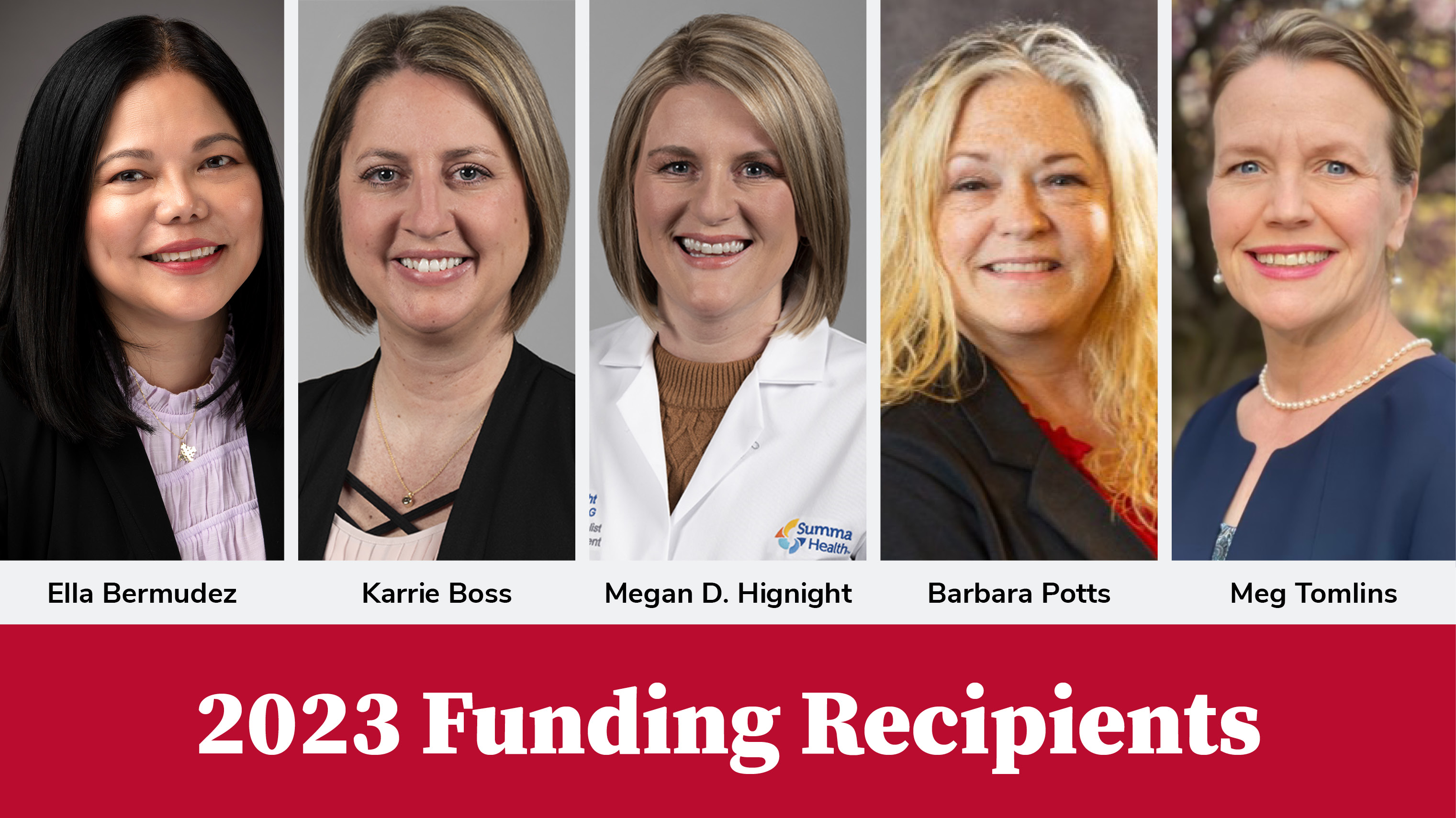
The Helene Fuld Health Trust National Institute for Evidence-based Practice (EBP) in Nursing and Healthcare at The Ohio State University College of Nursing has selected four proposals to receive Fuld Funding for the 2023 cycle.
All four projects – which will receive $2,500 each – focus on evidence-based practice and evidence-based quality improvement initiatives.
“These initiatives showcase the enormous impact that nurses can and must have in all kinds of healthcare settings to affect positive, evidence-based change, both for patients and for themselves,” said Sharon Tucker, PhD, APRN-CNS, EBP-C, FNAP, FAAN, director of the Implementation Science Core of the Fuld National Institute for EBP who led the Fuld Funding review and selection process. “We are proud to support this great work and look forward to seeing how these passion projects truly improve lives.”
The four funded initiatives are:
Emergency Department Nurse Internship: An Evidence-based Practice Initiative
Karrie Boss, DNP, APRN, ACCNS-AG, EBP-C, CCRN-K
Megan Hignight, MSN, APRN, ACCNS-AG
Summa Health
Boss and Hignight said this evidence-based emergency department (ED) internship program for RNs will be implemented in Summa Health’s four EDs to address high attrition rates for new nurses. The internship was successfully piloted in June 2022 in a 33-bed community ED, where Boss and Hignight found decreased new RN turnover (from 83% in April 2022 to 0% in January 2023), improved standardization of orientation and improved didactic learning scores (from 70.1% to 79.4%). The team will utilize the Fuld ARCC Evidence-based Initiative Implementation and Sustainability Toolkit to expand and scale the program system-wide.
“This generous contribution will help support the ED RN internship program that aims to positively impact nurse, patient and organizational outcomes,” Boss and Hignight said.
Reducing Risky Alcohol Consumption with Nurse-Led Intervention
Ella Bermudez
VA Palo Alto Health Care System
Bermudez said this EBP initiative was driven by clinicians' escalating helplessness in assisting veterans with alcohol use disorder. The team will build a brief alcohol counseling intervention in which clinicians engage veterans in mental health services and encourage them to complete timely alcohol screenings. The intervention revolves around creating a standardized workflow for clinicians and provides communication tools for alcohol screening, patient education and referrals for veterans with alcohol use disorders.
“This project launches VA Palo Alto Health Care System into the national limelight for our excellence and passion for evidence-based practice,” Bermudez said. “Impressions such as ‘That is too difficult’ and ‘I don't think anyone can do it’ are now shifting to ‘How did you do it?’ and ‘I want to be a part of it!’"
Get on Your Feet! Multidisciplinary Collaboration through Use of AM-PAC to Decrease Patient Falls
Barbara Potts, DNP, MS, APRN-CNS, ACCNS-AG
The Ohio State University Wexner Medical Center
“This funding gives us the opportunity to connect the world of physical therapy and nursing,” Potts said. “Implementation of this initiative will provide improved outcomes for patients through interdisciplinary collaboration.”
Potts said this project will establish a “culture of safe mobility” through a shared mental model and common language across disciplines. The driver of the project is the Activity Measure for Post-Acute Care (AM-PAC) “6 Clicks” Basic Mobility Short Form, a validated, reliable mobility assessment tool that will be used in conjunction with the Johns Hopkins Highest Level of Mobility guide. Outcomes to be measured will include fall rates, compliance with documentation of AM-PAC scores and patient mobilization.
Using Cognitive-Behavioral Therapy in the COPE Program to Reduce Anxiety and Depression: Group Therapy in a School Setting
Meg Tomlins
Graduate Student, DNP Psychiatric/Mental Health Program
UIC College of Nursing
Tomlins said she is grateful that this funding will fund program materials “to support implementing the COPE program at the project site, a small school on Chicago’s West Side, for all the students in the school, not only the eight involved in the initial program.”
The COPE program is an evidence-based therapeutic intervention to help develop coping and resiliency skills to alleviate anxiety and depression in school-aged students. Goals for the project include involving the school staff and parents to build support for the students participating, offering the seven-week COPE program to students in a small group setting to leverage their psychosocial development to synergize their learning and evaluating the students’ coping skills at the end of the program. Based on an evaluation of the project’s success, next steps may include training a clinical person or teachers to sustain the program’s offering throughout the school.
More information about Fuld Funding, including when the next application period will open, can be found at this link.